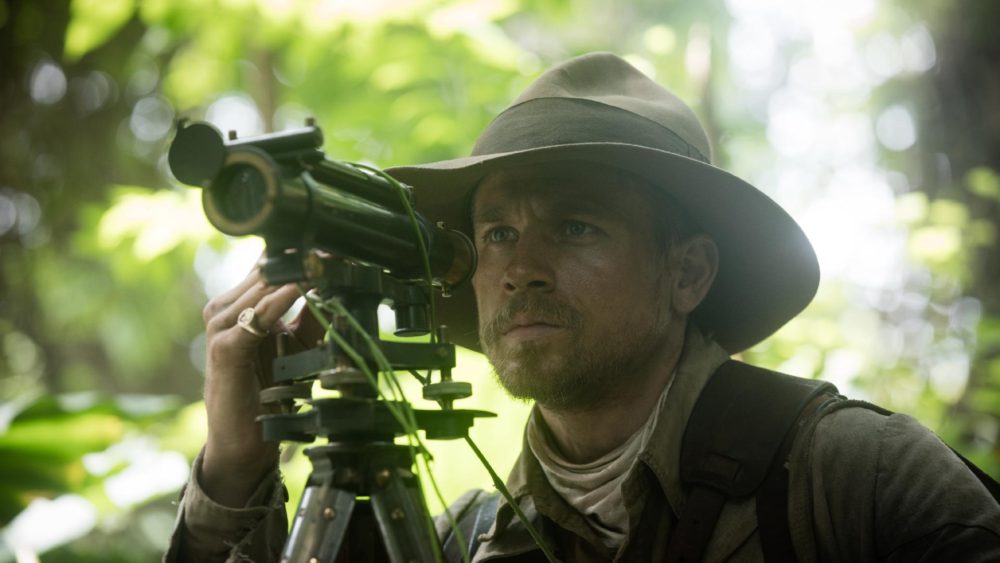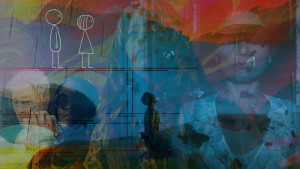Free Fire (Ben Wheatley, 2016)

Ben Wheatley and Amy Jump’s collaborative contributions to cinema have all been wildly different, though not without their connective tissue in terms of thematic exploration: a crime drama with horror elements, an offbeat comedy about death, a psychedelic 17th century post-war picture, and an adaptation of J.G. Ballard’s High-Rise. Cut to Free Fire, an action picture that takes place entirely in and around an abandoned factory in Boston where a gun sale is meant to happen.
Unsurprisingly, a shit show ensues. With Wheatley and Jump (as well as DP Laurie Rose, who creates a cool maze of a battlefield within a decrepit building), Free Fire never devolves into the incoherent mess it could be if lesser hands were present in the editing room. This is ultimately a film that features individuals shoved in a room together, acting at and against each other while also shooting at one another haphazardly.
Bullets fly every which way and imagining the plotting of these characters and who they target becomes a thing of fascination as the film unfolds. Sound fades in and out depending on which character is in frame and the rarely invasive score never distracts from the dialogue being thrown around (and it is beautifully isolated and mixed with snippets of the script and gunfights on the soundtrack).
At a breezy hour and a half, the film never overstays its welcome, in great part because of the charisma that the cast brings to the picture in their best 70s hair, make-up and costuming. So if you ever dreamed of watching Brie Larson, Armie Hammer, Cillian Murphy, Sharlto Copley and a number of others, spew giddy dialogue that reeks of entitlement at each other, Free Fire is the film for you.
Directed by Ben Wheatley; written by Ben Wheatley & Amy Jump; starring Michael Smiley, Brie Larson, Cillian Murphy, Armie Hammer, Sharlo Copley, Babou Ceesay, Noah Taylor, Jack Reynor, Enzo Cilenti, Sam Riley, Mark Monero, Patrick Bergin, Tom Davis & Sara Dee; 90 minutes.
—
The Lost City of Z (James Gray, 2017)

James Gray’s The Lost City of Z opens on the meaninglessness of a deer hunt; trampling, falling, and the death of both human and animal offered to the world (the former on-screen, the latter off). “To death: the best source of life,” a man says just after, and the ensuing hours of film only emphasize that. Col. Percival Fawcett’s journey into the Amazon is chronicled here in all its frustrating glory, shifting between those glorious near-death moments in the jungle and the heartbreak of being stuck at home, unable to discover.
By exploring Fawcett’s travels in depth, Gray is allowed the chance to pepper in information and subtly critique things like colonialism and what counted for progressivism during the period. He has no interest in approaching Fawcett as anything other than a man obsessed with discovery, the dull browns and cool tones of home life consistently stifling when compared to the grandiose nature of the jungle. By juxtaposing these two realms that Fawcett exists within, Gray nails the anxiety of being trapped in a civilization that feels unfamiliar.
“Peace means nothing will change,” another character says, and The Lost City of Z is as much about discovery as it is about the way individuals bring war into every aspect of their lives. Fawcett’s experience in the battlefield allows Gray to create micro-battlefields out of any location, be it the inner circle of white men or the rivers of the jungle. Lush cinematography via Darius Khondji and a score by Christopher Spelman that sweeps in every time adventure approaches is what awaits the viewer as they approach the jungle. The moments at home might prove tiresome to many—the occasional scene proving as endless as they must have felt for our protagonist—but each return to adventure proves a salve to lost interest.
At its best, Z works as well as The Immigrant did at creating a film that feels like it came from a bygone era. It’s half-escapism, half-reminder that we’re limited beings, and every ounce of sentimentality, frustration, and beauty, is offered to us through the lens of a great filmmaker. The compelling performances by Charlie Hunnam (whose hair proves unfathomably perfect, rain or shine), a near-unrecognizable Robert Pattinson, and Sienna Miller in a limited, but more fulfilling role than she’s had in ages, only serve to exemplify that statement.
Directed by James Gray; written by James Gray; based on the book by David Grann; starring Charlie Hunnam, Robert Pattinson, Sienna Miller & Tom Holland; 141 minutes.



 Derek
Derek
 Isabelle
Isabelle